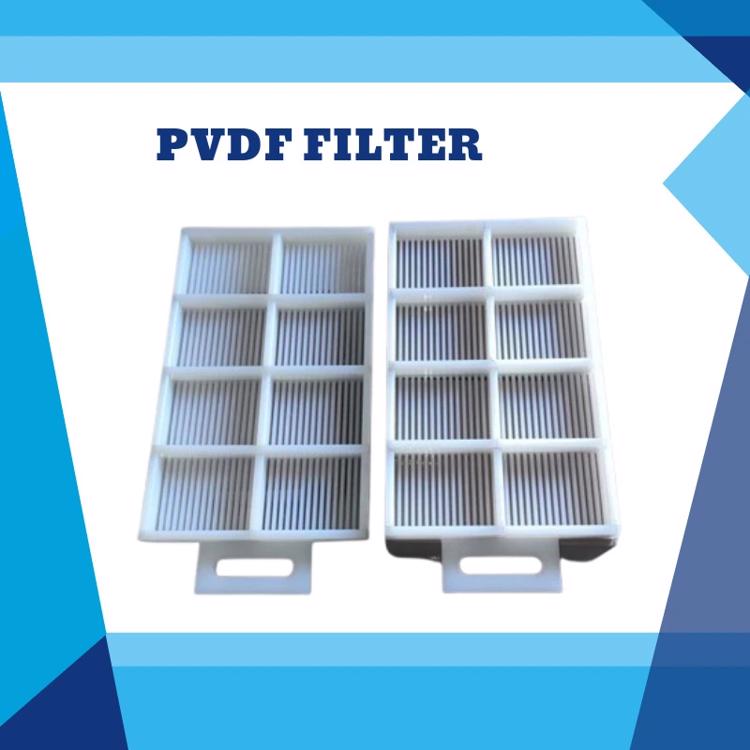Beyond Dawlish
How PVDF Filter Enhance Filtration Efficiency in Industrial Processes?
Filtration is a critical process in numerous industries, including pharmaceuticals, chemicals, food & beverage, and water treatment. The choice of the right filter material is essential to ensure efficiency, durability, and safety. PVDF filter has emerged as one of the most effective solutions for industrial filtration due to their superior chemical resistance, thermal stability, and mechanical strength.
In this blog, we will explore how PVDF filters enhance filtration efficiency, their key benefits, and their diverse applications across industries.

What Are PVDF Filters?
PVDF filters are filtration membranes made from polyvinylidene fluoride, a high-performance thermoplastic polymer known for its exceptional properties. These filters are commonly used in industrial applications where chemical resistance, high-temperature tolerance, and long-term durability are required.
Key Properties of PVDF Filters:
%u2714 High Chemical Resistance – Resistant to acids, solvents, and aggressive chemicals.
%u2714 Hydrophobic & Hydrophilic Variants – Suitable for both liquid and gas filtration.
%u2714 High Thermal Stability – Can withstand temperatures up to 150°C (302°F).
%u2714 Superior Mechanical Strength – Ensures durability and longevity.
%u2714 Low Protein Binding – Ideal for pharmaceutical and biotechnological applications.
%u2714 High Porosity & Permeability – Allows efficient filtration with minimal pressure drop.

How PVDF Filters Enhance Filtration Efficiency?
PVDF filters are widely used in industrial processes due to their ability to enhance filtration efficiency in multiple ways. Below are the key factors that make PVDF filters a preferred choice for industrial filtration.
-
Exceptional Chemical Compatibility
Many industrial processes involve harsh chemicals and aggressive solvents. Unlike other filter materials, PVDF membranes resist degradation from strong acids, bases, and organic solvents. This chemical resistance ensures longer service life and consistent performance, reducing the need for frequent replacements.
-
High Temperature Resistance
PVDF filters can withstand high temperatures, making them ideal for applications where hot fluids or gases need to be filtered. This thermal stability ensures that the filter maintains its integrity even in demanding conditions, leading to more reliable filtration performance.
-
Low Protein Binding for High Purity Filtration
In industries like pharmaceuticals and biotechnology, where purity is crucial, PVDF filters are an excellent choice. They have low protein binding properties, ensuring that essential biomolecules are not lost during filtration. This property enhances efficiency in sterile filtration, vaccine production, and biological sample processing.
-
High Flow Rates & Low Pressure Drop
PVDF filters are designed with high porosity to allow maximum flow rates while maintaining excellent filtration efficiency. This means industrial processes can run at higher speeds without compromising filtration quality, leading to reduced operational costs and improved productivity.
-
Superior Mechanical Strength for Longevity
Unlike some polymer-based filters that may degrade over time, PVDF filters have high mechanical strength and durability. This means they can withstand high pressure differentials without compromising their structure, making them suitable for high-pressure industrial systems.
-
Resistance to Fouling & Clogging
One of the major challenges in industrial filtration is filter fouling, which reduces efficiency over time. PVDF filters have a smooth, non-porous surface that resists fouling and clogging, resulting in longer service life and reduced maintenance costs.
-
Hydrophobic & Hydrophilic Options for Versatile Applications
PVDF filters come in both hydrophobic and hydrophilic variants, making them suitable for a wide range of applications:
- Hydrophobic PVDF Filters – Used in gas filtration, air purification, and solvent filtration.
- Hydrophilic PVDF Filters – Used in water filtration, beverage processing, and chemical separations.
Industries That Benefit from PVDF Filters
PVDF filters are widely used in industries that require high-efficiency filtration and contamination control. Some of the major industries benefiting from PVDF filters include:
Pharmaceutical & Biotechnology – Used for sterile filtration, drug purification, and protein filtration.
Water & Wastewater Treatment – Effective in removing bacteria, viruses, and chemical contaminants.
Food & Beverage Industry – Ensures removal of impurities in juices, dairy products, and bottled water.
Chemical Processing – Ideal for filtration of aggressive chemicals, acids, and solvents.
Oil & Gas Industry – Used in fuel filtration and petrochemical processing.
Microelectronics & Semiconductor – Helps in removing nanoparticles and ultra-fine contaminants.
How to Choose the Right PVDF Filter for Your Application?
When selecting a PVDF filter, consider the following factors:
Pore Size – Choose the appropriate micron rating based on the particles you need to filter.
Flow Rate Requirements – Ensure that the filter provides the desired flow rate without excessive pressure drop.
Chemical Compatibility – Verify if the filter material is resistant to the chemicals in your application.
Operating Temperature & Pressure – Select a filter that can handle the required temperature and pressure conditions.
Sterility Requirements – If used in pharmaceutical or food processing, ensure the filter meets sterility and safety standards.
Conclusion
PVDF filters are a game-changer in industrial filtration, offering unparalleled chemical resistance, thermal stability, and high efficiency. They enhance filtration performance by providing long-lasting durability, high flow rates, and superior contaminant removal. Their versatility in handling both liquid and gas filtration makes them a top choice for industries like pharmaceuticals, water treatment, chemicals, and food processing.
If you are looking for high-quality PVDF filters for your industrial applications, Petron Thermoplast offers a wide range of customizable filtration solutions to meet your needs. Need the best PVDF filters for your industry? Contact Petron Thermoplast today and enhance your filtration process with cutting-edge technology!












